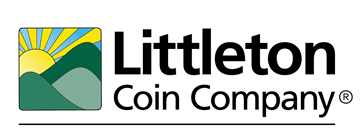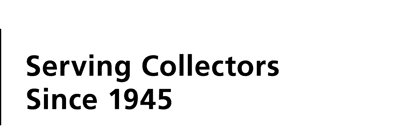
My “Dream” [1652] New England Shilling Sold at Auction for a Record Price

Enjoying my Massachusetts Bay Collection, including my extremely rare New England Shilling
A record auction price for one of America's oldest and rarest coins was achieved when I recently sold my collection of Massachusetts Bay Colony silver coins. My extremely rare 1652 [undated] New England Shilling was the premier piece in my 19‑coin Massachusetts Bay collection, which I had gradually assembled over the course of a decade. These prominent colonial coins were struck over 300 years ago from 1652–1683 and feature the famous New England, Willow Tree, Oak Tree and Pine Tree motifs.
These were also coins I learned about at an early age. My first recollection of a [1652] New England Shilling was in Ripley's Believe It or Not! in the Sunday comics in the 1950s. The idea of a coin that old was amazing – struck in 1652 not long after the Pilgrims landed at Plymouth Rock in 1620! As a New Englander, this coin made a real impression with its simple ne obverse (for New England) and Roman numeral XII reverse (for 12 pence or one shilling).
Growing up in our family stamp and coin business, I was collecting Lincoln cents, Buffalo nickels and Mercury dimes by about age ten. The scarce and rare Massachusetts Bay Colonials listed and pictured right up front in the official Red Book (A Guide Book of United States Coins) were dream coins to a young collector like me! In later years, I would learn a lot more about the varieties of these coins and the collectors who've owned them.
Assembling my Massachusetts Bay Colony Silver Collection
I began collecting a few Massachusetts Bay coins in 2004, and the following year looked forward to the 12th auction sale of the John J. Ford Collection – famous for its holding of early Massachusetts colonial silver. Ford worked for several leading New York coin firms and became co‑owner of the New Netherlands Coin Company. In addition to being a full‑time dealer, Ford actively collected, though few if any knew to what extent until after his death. Knowing many top collectors and dealers, Ford was aware when highly desirable coins came on the market, including choice items not available for almost a century. When his collections of tokens, medals, paper currency and early U.S. colonials were sold in a series of sales spanning over twenty years, the total prices realized exceeded $61 million.

Early 1960s Red Book listing of NE Shilling
I eagerly anticipated the 12th Ford sale, and the opportunity to own one of the coins of my dreams! My top desire was Lot #1 – the 1652 New England Shilling of the extremely rare Noe‑1‑A variety with perhaps five known. This was the most artistic type, with a long sweeping tail on the "E" of the NE obverse. My second choice was lot #4 of the Noe III‑C variety, the most often seen type of NE Shilling with perhaps 20 known.
I can't recall the opening bid for my first choice, but after several increments I won the bid – with an elapsed bidding period of probably less than two minutes which seemed like an eternity. When hammered at $220,000, I had spent approximately $253,000 with the buyer's fee – about nine times what I'd spent on my first house! Amazingly, I was offered a profit right after the sale, but turned it down because I wanted to own this dream coin!

Boston ANA attendees examining my Massachusetts Bay Colony coin display
I took great pleasure putting my Massachusetts Bay coins together over ten years – a small collection but mighty in terms of quality. Several are plate coins in the Red Book and other reference works. The color of the coins was wonderful – varied hues of original grey – just the way coins some 350 years old should look. To top things off, I had the opportunity to display some of them at the 2010 American Numismatic Association convention in Boston – where the coins were all struck at the first mint in what became the United States. My staff put together a first‑class display that told the fascinating story of these coins. It was a thrill to show them off.
Selling my Massachusetts Bay coins to pursue other collecting interests
After much deliberation this past summer, I made a decision that many collectors face – to let these coins go to new homes to enable pursuit of my other collecting interests. The Baltimore Whitman Expo in November took place in conjunction with the Colonial Coin Collectors Club ("C4") convention, and there could not be a better venue. I consigned 18 of the 19 coins to Stack's Bowers for the expo auction, and at Dave Bowers' suggestion, kept one of my two Noe‑1 Pine Tree Shillings as a remembrance of my collection.
As the auction got closer, I wondered about my decision to sell – would my coins be received favorably by collectors? Would they appreciate them as much as I did? The Friday evening session of the expo auction on November 8, 2013 began with an opening bid of $250,000 for my prized New England Shilling, followed by an unnerving silence I soon learned to accept, as online and telephone bids take time for completion. When the hammer finally came down, the coin set a record price for New England Shillings at $440,650 with buyer's premium. I carefully watched and listened to the bidding for all 18 lots, and thanks to enthusiastic bidding and the expertise of the auction firm, the sale of the collection exceeded my expectations.
Being the temporary caretaker of these important historical artifacts was a wonderful experience, and I'm thrilled the coins are in new homes with appreciative owners. It turned out that several coins were acquired by one experienced and enthusiastic collector of U.S. Colonials, who was represented at the auction by the firm of a good friend of mine. The collector's numismatic agent, Michael Printz of Harlan J. Berk, Ltd. remarked: "I'm very pleased and honored to have represented a collector who understands the importance and incredible historical significance of these coins... This is a dream come true for our client." For every collector fortunate enough to own these legendary coins, it's a privilege and an honor!
To read more articles on David's colonial coin collection, visit Littleton's Press Room.

Auction room and display screen for the sale of my collection in Baltimore

